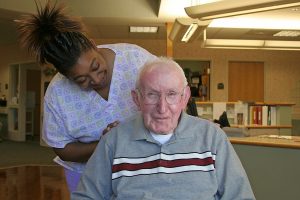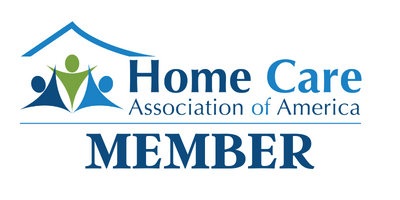No one likes to think about the day when we need to provide more elder care for our aging parents. Most people have questions and are very unprepared for the day when it arrives.
What is the difference between a nursing home and assisted living?
Do I need to find a facility that specializes in Alzheimer’s or dementia care?
Can my parents stay in their home safely?
How do I know if the facility I am considering is appropriate, trustworthy and the best option?
Many families struggle with these questions and how to talk to the elder family member about their care. Consequently, the topic gets avoided. Unfortunately, at some point most seniors need some additional help to live safely and healthy in their later years. With long waiting lists at quality facilities, and lengthy intake processes for in-home healthcare, the last thing any family wants is to do is have to make these choices in an emergency. The more prepared you all can be, the smoother the transition to care assistance for them will be.
Ideally, your loved one could stay at home. While there are excellent options for in-home health and personal care assistance, sometimes a professional care facility for short-term rehabilitation or long-term care is necessary.
What Type of Facility Does My Parent Need?
There are many excellent options available to seniors, and support for families. The decision to place a family member in a facility is an important one, but it can also be the best choice for your loved one. In a senior care facility they can be around their peers, have immediate professional and personal care when they need it, and enjoy a social and active lifestyle. Family members can continue to have quality time, and rest assured their parent is in good hands at the same time.
Being prepared and knowledgeable about the options available is very important. You owe it to your loved one and yourself to be as prepared as possible when the time comes that your parents can no longer care for themselves.
When the time comes that it’s clear your senior needs 24-hour attention that only a professional care facility can provide, know the difference in the options.
Retirement Homes
Retirement homes are for individuals who are alert and independently ambulatory. Services typically include housekeeping, meals, laundry, activities, entertainment, transportation and companionship at monthly rental and fees. Couples can remain living together, have some support and oversight, but still enjoy an independent lifestyle.
Assisted Living Facilities
Assisted living facilities are appropriate for those seniors who are both ambulatory or non-ambulatory. They offer the similar services as those provided by retirement homes, but with additional personal care and healthcare assistance. Your parent will receive assistance with bathing, dressing, medication, and incontinence care. Some facilities have a memory loss section of the facility for residents diagnosed with Alzheimer’s or dementia.
Residential Care Facilities for the Elderly (RCEE)
Board and Care RCEE services include more of a full package of assistance with both medial, personal and daily living assistance. Residents have help with bathing, dressing, incontinence care, medication dispensing, walking and exercising, meals and feeding, grooming, housekeeping, laundry and other needs of daily living. They provide the care and services seniors who suffer from memory loss associated with Dementia, Alzheimer’s, Parkinson’s disease, or heart disease and the after-effects of stroke require.
Skilled Nursing Facilities
Skilled Nursing facilities are for those who need long-term care after an illness or injury, as well as those who have severe confusion associated with Alzheimer’s disease or end stages of life. These facilities offer higher-level medical care such as those being tube-fed, are catheterized, or is completely bedridden.
Memory, Alzheimer’s and Dementia Facilities
Alzheimer’s and dementia facilities are for seniors who are living with the long-term effects of memory disease, who wander, and become easily confused. These specialized facilities are for those who need more care and supervision in a safe environment. These facilities are secured to prevent wandering, and offer all the same basic daily care needs with staffing that is trained to the special needs of the residents.
At Arcadia New England, we know that these are difficult discussions for a family to have. It can also be very confusing, but educating yourself is an important first step. Most facilities have social workers on staff who evaluate the elder and advise the family as to the best care assistance options. Your parent’s doctor and other medical professionals can help as well.


